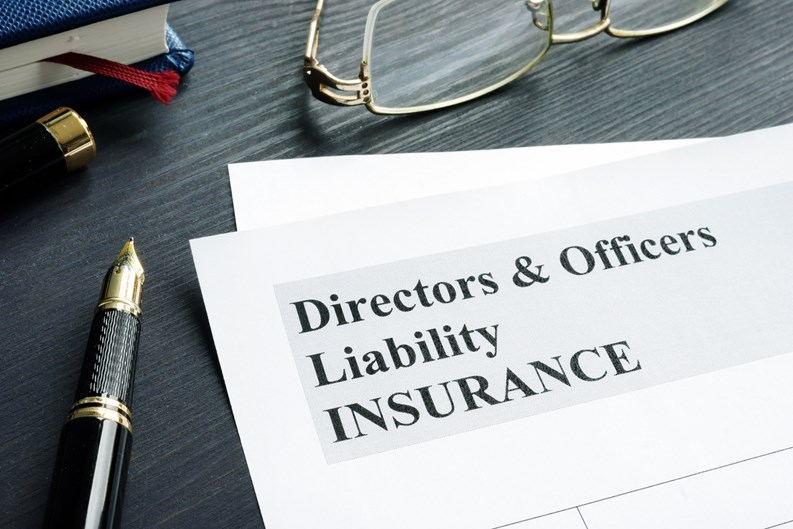At the heart of volunteerism is the notion of doing something for the common good. For many, choosing to live in a co-op or condo community is also choosing to volunteer for board service, helping to guide and govern the community they call home. But with that impulse to serve the common good lurks the possibility of liability - a concern that stops many from wanting to participate in the governance of their building or association. Fortunately, that’s where directors and officers - commonly called simply D&O - insurance comes in.
What’s D&O?
In a nutshell, directors and officers insurance is a form of liability coverage that indemnifies— protects, in other words—the board members of a corporation or association against losses or advancement of defense costs in the event that a decision made in good faith by the board or board members results in damages of some sort.
Wayne Dow is vice president for Preferred Property Programs, an insurance company based in Holmdel, New Jersey that writes policies nationally. “The easiest way to describe D&O insurance when I’m explaining it to board members is that it’s ‘sleep insurance.’ It gives them the ability to sleep at night. D&O coverage protects their personal assets if they are sued and claims made against them as volunteer board members for their community association. D&O is there to protect the volunteer board members. If there is a suit, you as a board member can only be sued in your capacity as a board member. Your personal assets are protected.”
“Directors and Officers insurance coverage is a type of insurance coverage available to cooperative, HOA and condominium boards generally intended to cover claims against board members and/or officers for alleged errors and omissions and/or breach of fiduciary duties,” says Mark Hakim, an attorney with New York City-based law firm Schwartz Sladkus Reich Greenberg Atlas. “It’s a type of coverage that’s purchased in addition to the other insurance normally carried,” However, Hakim is quick to note that D&O is not carte blanche for boards to act with impunity. That bit about ‘decisions made in good faith’ is very much key. “Each such officer or board member may be held personally liable for actions not taken in good faith, or taken outside the scope of their duties,” says Hakim, “including but not limited to discrimination, self-dealing, retaliation, etc. D&O insurance coverage is generally only afforded if the alleged conduct of the board member or officer was within the scope of their duties, performed in good faith, and without gross negligence.”
Within those parameters, Hakim continues, “The importance of D&O insurance cannot be overstated. The presence of such insurance permits members or officers, each of whom are unpaid volunteers, to freely participate in corporate governance without fear of personal liability for merely exercising their jobs in good faith. It is difficult at times to get people to serve on boards, and absent this protection, it would be even more difficult. D&O is not a luxury—it’s a necessity when serving on a board.”
Jay Dixon, a senior director with OnePoint Insurance, a national insurance brokerage with offices in New York City, says, “Directors and Officers Insurance and Employment Practices Liability Insurance (EPLI) are crucial parts of the insurance plan for boards of cooperatives and condominiums. These coverages provide financial protection for board members, officers, and volunteers against claims and financial risk if they are sued for decisions made and/or actions taken while performing their official duties. This coverage is essential because board members can serve without fear that their personal assets, like savings or property, will be at risk due to lawsuits related to their board activities. D&O encourages participation in the community, because board members and prospective board members know they are protected. More residents are likely to volunteer for board positions, ensuring the cooperative or condo has qualified and willing leaders.”
“D&O insurance is important because a director or trustee would have to pay a personal judgment. In today’s world, the fact that someone sues you is very serious. You have to defend yourself, and the legal fees are substantial,” says Ellen Shapiro, a partner with Allcock & Marcus, a law firm located in Braintree, Massachusetts. “Board service is voluntary, so people won’t run if they are afraid they will get sued and they have to defend themselves out of their own pockets. D&O pays those legal fees.”
What’s Covered & What’s Not
Almost any decision made by a board can potentially lead to allegations of breach of fiduciary duty, mismanagement, or employment practices violations. For example, decisions such as not approving a potential buyer in a cooperative, terminating a contract with a vendor, or an employee’s dismissal can expose the board to legal liabilities and lawsuits. “D&O insurance helps mitigate the financial risks when lawsuits do arise,” says Dixon. “Legal defense costs, settlements, and judgments can be financially devastating, and D&O insurance covers these expenses, protecting the co-op or condo’s financial health.”
Again, however, Dixon makes clear that “While D&O insurance is fairly comprehensive, it typically does not cover fraud and criminal acts, intentional illegal acts, or fraudulent activities, personal profit claims related to directors or officers gaining personal profit to which they were not legally entitled, bodily injury and property damage.” It also does not cover “claims involving physical injury or property damage, which are usually covered by general liability insurance. Pending and prior litigation, as well as claims related to legal actions that were known before the policy inception are also not covered.”
Hakim concurs. “D&O insurance will generally defend and/or cover the expenses of a defense in connection with a claim against a board member or officer, however only to the point it is, if at all, determined that the board member or officer did violate a law or otherwise breach their fiduciary obligations,” he says. “Simply stated, you cannot purchase insurance that would cover you for an illegal act.” Provided a board member or officer can demonstrate that their actions/decisions were made in good faith, in the interests of the corporation/condo/HOA, generally their actions are covered by what is commonly known as the Business Judgment Rule, and D&O insurance would cover these decisions/actions.”
Coverage Amounts & Other Pertinent Points
Much like other types of insurance, premiums for D&O coverage are determined by various factors, including the corporation or association’s past claims history, the number of units in the community, the number of board members, the average value of units in the building, the condition of the community’s finances, and whether the association operates at a profit or a deficit. Given how variable all those factors are from community to community, there is no ‘average’ premium; the premium is specifically underwritten according to the individual characteristics of the exposure.
According to Steven Mlenak, a partner with Greenbaum, Rowe, Smith & Davis, a law firm located in Roseland. “Most D&O policies require notification to the carrier within a certain period, or else a claim can—and will—be denied.” Like all insurers, D&O insurers are extremely cognizant of claims and the costs associated with those claims. Repeated claims against a board’s D&O policy may result in higher premium costs. “The greater the number of claims and amount of money spent by a carrier to defend an association,” he cautions, “[the greater the] impact on the association’s ability to secure affordable coverage going forward.”
Policy premiums and retention amounts also vary by state and jurisdiction. For example, “The premium for a D&O policy on a 200-unit co-op in Manhattan is more than it would be for a suburban 200-unit HOA in Dallas, Texas,” says Dow. “Pricing is governed by the nature of risk. Also, limits are provided and can be guided by a community’s governing documents. Those documents may dictate that you need ‘X’ dollars worth of coverage, etc., or can be determined by the level of exposure. A Miami beachfront condominium may have a beach, restaurant, pool, fitness center etc., while other buildings do not, resulting in less risk for the latter.”
According to Dixon, “Every board should have D&O insurance; the governing documents of the association normally mandate it. There is never a reason for a board to be without this coverage. It is absolutely essential. We typically advise our clients to secure $1 to $2 million in D&O coverage with ‘defense costs outside the limits.’ This means the costs of defending a claim do not reduce the actual limit available to pay the claim. Some excess liability and umbrella policies can include D&O coverage, providing additional limits for D&O claims.”
“Every board should have D&O insurance—without exception,” says Hakim. “While limits should be discussed with the building’s carrier, policies of not less than $1 million, with much larger umbrella limits higher than that, should be considered. We are a very litigious society, and board members and officers should never have to fear for their personal financial wellbeing just for being a board member or officer.”
D&O insurance is critical for all shared interest communities, and serves more than one purpose. While there to protect decision makers, it’s also there to mitigate the concerns of those same decision makers about their personal liability when stepping forward to volunteer. It’s the peace of mind that makes volunteer service possible.
A J Sidransky is a staff writer/reporter for CooperatorNews, and a published novelist. He may be reached at alan@yrinc.com.







Leave a Comment